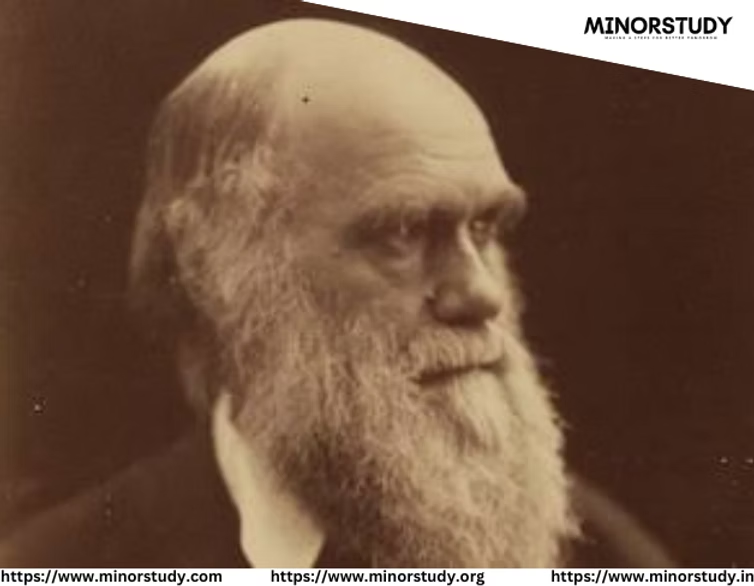🧬 All About Charles Darwin: History, Facts, Timeline, FAQs, Significance & Impact on Daily Life
Charles Darwin – a name that forever changed how humanity perceives life, nature, and our place in the universe. Whether you’re a student, a science enthusiast, or simply a curious mind, Darwin’s theory of evolution is not just about biology — it’s about understanding life itself.
- 📖 Charles Darwin: A Brief History
- 🌟 7 Revolutionary Reasons Why Charles Darwin Still Positively Impacts Modern Life
- 🧠 Fascinating Facts About Charles Darwin
- 📅 Timeline of Darwin’s Life and Work
- ❓ Frequently Asked Questions (FAQs)
- 🌍 Global Significance of Charles Darwin’s Work
- 🧘 Importance in Our Lives and Society
- 💖 Wishing Charles Darwin – A Tribute to His Timeless Wisdom
- 🔬 Observance: Celebrating Darwin’s Wisdom
- 📌 Key Points to Remember
- 💬 Conclusion: The Evolution of Thought
In this detailed, human-centric guide spanning over 1200+ words, we’ll dive deep into:
The history of Charles Darwin
Fascinating facts
His scientific timeline
FAQs and myths debunked
The significance of his ideas
Global observance and recognition
Wishing and reflecting on his legacy
And finally, how his work shapes our daily lives
📖 Charles Darwin: A Brief History
Charles Robert Darwin was born on February 12, 1809, in Shrewsbury, England, into a well-off and scholarly family. His grandfather, Erasmus Darwin, was a physician and natural philosopher who inspired young Charles.
Initially studying medicine and later theology, Darwin’s life took a radical turn when he joined the HMS Beagle as a naturalist in 1831. That voyage became the turning point of his life—and ours.
It was during his exploration of South America and the Galápagos Islands that he began to piece together what would become the Theory of Evolution by Natural Selection — published in 1859 in his groundbreaking book On the Origin of Species.
🌟 7 Revolutionary Reasons Why Charles Darwin Still Positively Impacts Modern Life
Transformed Science Forever
Darwin’s theory gave science a unifying explanation for biodiversity and extinction.Laid the Foundation for Genetics
Though he never knew about DNA, Darwin’s work set the groundwork for Mendel, Watson & Crick.Changed Philosophy & Religion Dialogues
His ideas challenged rigid religious interpretations, encouraging open dialogue between faith and reason.Improved Understanding of Medicine
From antibiotic resistance to genetic mutations, Darwin’s ideas help doctors understand disease evolution.Inspired Environmental Awareness
Knowing how species adapt highlights the urgency of preserving ecosystems.Boosted Social Sciences
Evolutionary psychology and anthropology owe their birth to Darwinian insights.Encouraged Critical Thinking
Darwin’s intellectual courage taught us to question, observe, and reason — the essence of human progress.
🧠 Fascinating Facts About Charles Darwin
Darwin delayed publishing his theory for over 20 years, fearing religious backlash.
He was not an atheist; he struggled with belief and was likely agnostic.
Darwin was seasick almost every day aboard HMS Beagle.
He loved earthworms — and even wrote a scientific book about them.
He married his first cousin, Emma Wedgwood.
He is buried at Westminster Abbey, near Sir Isaac Newton.
📅 Timeline of Darwin’s Life and Work
| Year | Milestone |
|---|---|
| 1809 | Born in Shrewsbury, England |
| 1831 | Boards HMS Beagle for a 5-year voyage |
| 1836 | Returns to England with crucial observations |
| 1859 | Publishes On the Origin of Species |
| 1871 | Publishes The Descent of Man |
| 1882 | Passes away; buried in Westminster Abbey |
❓ Frequently Asked Questions (FAQs)
Q1: What was Darwin’s biggest contribution to science?
A: The Theory of Evolution by Natural Selection, which explained how species evolve over time based on environmental pressures.
Q2: Did Darwin invent evolution?
A: No. Evolution as an idea existed earlier, but Darwin provided the mechanism (natural selection) and scientific evidence.
Q3: Was Darwin anti-religion?
A: No. He had a complex relationship with religion. While his theory challenged literal interpretations of creation, he was not anti-religious.
Q4: What is natural selection?
A: It’s the process where organisms better adapted to their environment tend to survive and produce more offspring.
Q5: Why was Darwin controversial?
A: His theory contradicted traditional beliefs about creation, prompting fierce debates that continue even today in some circles.
🌍 Global Significance of Charles Darwin’s Work
Charles Darwin did not just give us a theory — he opened a portal into understanding the fabric of life. His insights:
Inspired scientists across disciplines — from astronomy to medicine.
Sparked philosophical and ethical debates on the origin and purpose of life.
Created the foundation of modern biology.
Encouraged societies to invest in scientific literacy and education.
Celebrated Worldwide
Darwin Day is celebrated on February 12th globally to promote science and reason.
Museums, universities, and science festivals host exhibitions and lectures to honor his legacy.
🧘 Importance in Our Lives and Society
You may not realize it, but Darwin’s influence touches you every day:
Healthcare: Evolution helps explain viral mutations (e.g., COVID-19 variants).
Agriculture: Understanding how pests evolve guides better crop protection.
Education: School science curricula around the world are built on Darwinian principles.
Conservation: Shows us how delicate and adaptive life is — and why protecting biodiversity is crucial.
Human behavior: Evolutionary psychology explains instincts, habits, and even attraction.
Darwin’s theory doesn’t make life less magical — it reveals its incredible complexity and adaptability.
💖 Wishing Charles Darwin – A Tribute to His Timeless Wisdom
“To Charles Darwin — thank you for helping humanity see itself not above nature, but a part of it.”
May his legacy continue to ignite curiosity, wonder, and respect for life on Earth.
🔬 Observance: Celebrating Darwin’s Wisdom
✨ Darwin Day (February 12)
Observed in over 60 countries, Darwin Day promotes:
Scientific thinking
Public education
Appreciation of the natural world
Schools conduct debates, scientists give public lectures, and many people reflect on how far we’ve come in understanding our origins.
📌 Key Points to Remember
Darwin’s natural selection theory is a pillar of modern science.
He was a humble, observant naturalist, not a rebel.
His ideas continue to evolve with genetic science and AI.
Critical thinking, evidence-based reasoning, and curiosity — that’s the legacy Darwin leaves us.
💬 Conclusion: The Evolution of Thought
Charles Darwin didn’t just study nature — he transformed how humanity understands itself. From the birds of Galápagos to the cells in your body, his work bridges everything alive. It taught us that we are all interconnected, adaptive, and ever-evolving.
His brilliance wasn’t just in discovery — it was in listening to nature, observing silently, and letting evidence speak louder than belief.
Let us not only celebrate him once a year but live every day with the awe and responsibility that his revelations deserve.
Because to understand Darwin is to understand that life is not a ladder, but a magnificent, branching tree — and we are all a part of it.








